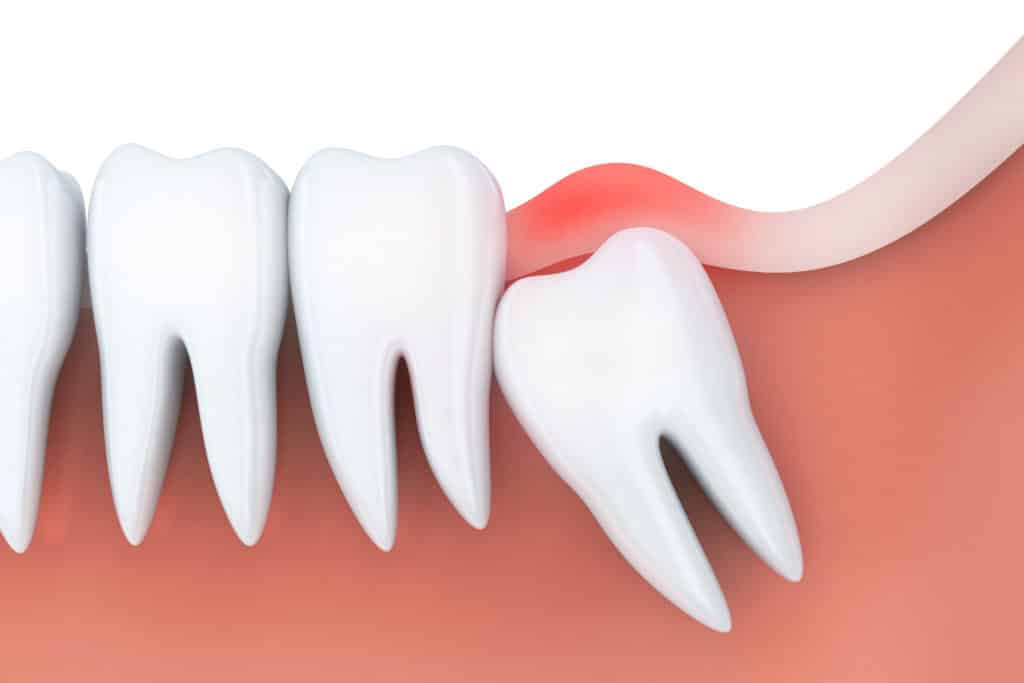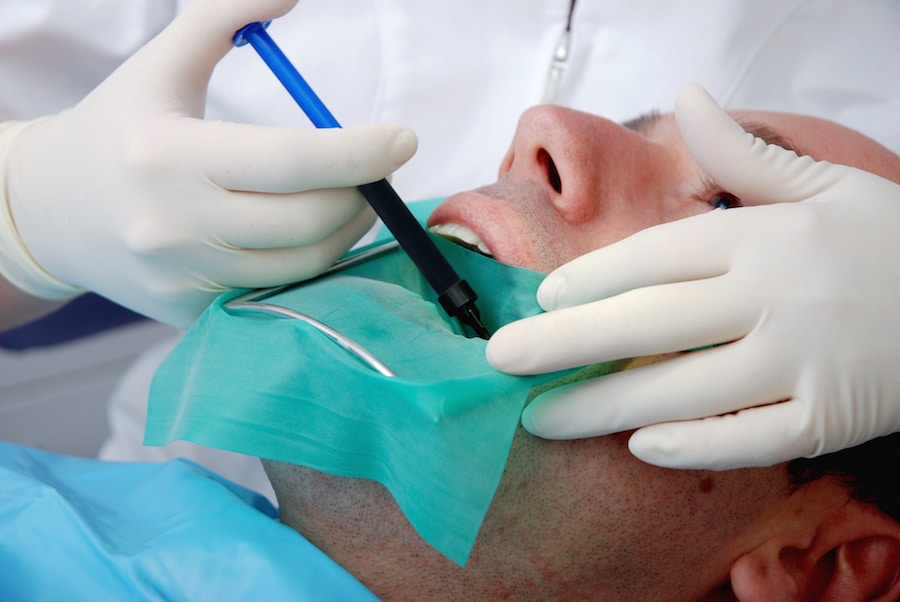Most adults will have their wisdom teeth removed at some point in their life. If your wisdom teeth are not removed, they can cause some dental complications. A wisdom tooth infection is one such complication. Here’s what to do about a wisdom tooth infection, how to detect one, and what might cause it to happen.
What is a Wisdom Tooth Infection?
A wisdom tooth infection, also known as pericoronitis, occurs when the wisdom tooth, also called a third molar, becomes infected due to bacteria getting trapped in the soft tissue surrounding the tooth. Since wisdom teeth generally don’t emerge the same way as other teeth, they can be more prone to infections than other teeth.
Wisdom teeth generally sit below the gums until about the ages of 17 to 25, and they may emerge at this age. Most people have four wisdom teeth, and most people also do not have enough space in their mouth to comfortably accommodate the teeth. As a result, the teeth can sometimes become impacted. This means they don’t fully emerge from the gums, creating a space where bacteria can accumulate, even if you are brushing and flossing diligently. Accumulated bacteria can overwhelm your immune system and create an infection, a painful condition that can damage the surrounding tissues and, if the infection is bad enough, even the tooth root and inner structures.
Concerned about a tooth infection? BDG can help!
Learn more about emergency dental care >>
Signs of a Wisdom Tooth Infection
Knowing the signs of a wisdom tooth infection can help you identify the condition if it occurs. The signs of a wisdom tooth infection are similar to the signs of a tooth infection overall, though the symptoms will appear around the back of your mouth, where your wisdom teeth are.
Symptoms of a wisdom tooth infection may include:
- Pain: Persistent or throbbing pain in the back of the mouth, near the affected wisdom tooth.
- Swelling: Swelling of the gums or cheeks in the area of the infected tooth.
- Redness: Redness or inflammation of the gums surrounding the wisdom tooth.
- Difficulty chewing or talking: It might be difficult to open your mouth, chew, or talk with a wisdom tooth infection.
- Bad Breath: Foul taste or odor in the mouth due to the presence of infection.
- Fever: In severe cases, a fever may develop as the body’s immune response tries to fight off the infection.
Will a Wisdom Tooth Infection Go Away on its Own?
In general, a wisdom tooth infection will not resolve itself. Since the infection can spread to other teeth or over your gums, it’s important to get the condition treated as soon as possible. If left untreated, an abscess may form. This may lead to further pain, swelling, and then spread the infection to other areas of the body. The infection might also spread to the living structures that support healthy teeth, such as your tooth roots or tooth pulp. If the infection spreads, it can be even more difficult for your body to fight it off, leading to further complications.
How to Treat a Wisdom Tooth Infection
Treating a wisdom tooth infection is critical if you notice the signs. There are a few different ways to treat a tooth infection, as well as treating the tooth infection pain.
Treatment for a wisdom tooth infection typically involves:
- Dental Evaluation: Talk with your dentist as soon as possible. Your dentist can help you deal with the infection, and may recommend wisdom tooth removal to stop bacteria from accumulating again.
- Antibiotics: Antibiotics may be prescribed to help fight the bacterial infection and reduce inflammation. To effectively deal with the tooth infection, it’s essential to complete the full course of antibiotics as prescribed by your dentist or oral surgeon.
- Pain Management: Pain relief strategies like oral pain relief gel, for example, can help alleviate pain and discomfort caused by the infection.
- Warm Saltwater Rinse: Rinsing the mouth with warm saltwater can help reduce swelling and promote healing of the infected area.
In some cases, wisdom tooth extraction is needed to stop the infection from coming back. This procedure is safe and common, typically performed by an oral surgeon under local or general anesthesia.
If you suspect you have a wisdom tooth infection or are experiencing any of the symptoms mentioned above, it’s essential to see your dentist quickly for evaluation and treatment. If you think you may have a wisdom tooth infection, or another emergency dental issue, BDG can help. For emergency dental care in Las Vegas, contact our offices today.



